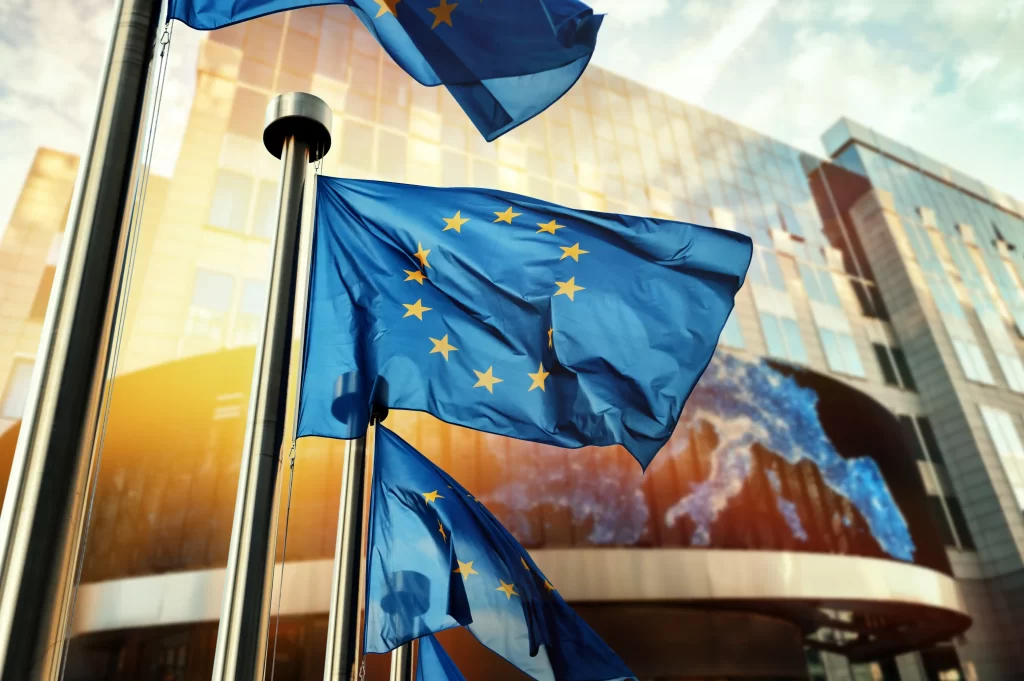ECB’s Determined Rate Hikes Amid Inflation Concerns: Lagarde’s Cautionary Tone
3 min read
The European Central Bank’s (ECB) consistent interest rate hikes have propelled rates to a 23-year peak, led by the ninth consecutive increase. ECB President Christine Lagarde emphasizes data-driven decision-making, hinting that further rate decisions in September might vary based on economic conditions. This policy move, in tandem with global central banks’ inflation-fighting actions, raises questions about the impact on the economy.
The European Central Bank (ECB) has continued its streak of interest rate hikes, reaching a peak not seen in 23 years. The recent ninth consecutive rate hike has drawn attention to the central bank’s approach to combating inflation, especially amidst ongoing global economic uncertainties.
ECB President Christine Lagarde underscored the data-driven nature of the governing council’s decisions during a press conference. She emphasized that the bank’s determination could shift from month to month, hinting at the possibility of both rate hikes and holds in the near future. Lagarde suggested that the decisions taken in September wouldn’t be definitive, showcasing the bank’s flexibility in the face of evolving economic conditions.
Global central banks have collectively acted to raise borrowing costs in response to the inflationary pressure stemming from higher energy prices post-Russia’s invasion of Ukraine and supply chain disruptions as the global economy recovers from the COVID-19 pandemic.
However, as these central banks continue their rapid series of rate hikes, the question arises as to whether these efforts are reaching a saturation point.
The ECB’s rate hike followed the US Federal Reserve’s decision to raise its key rate for the 11th time in 17 months. Despite the inflation rate being lower in the US (at three percent) compared to Europe, Fed Chair Jerome Powell remained noncommittal about the possibility of more rate hikes.
In the eurozone, inflation has decreased from its peak of 10.6 percent in October to 5.5 percent in June. While it has decreased, it still remains well above the ECB’s target of two percent, which is considered optimal for economic stability.
The combination of rising prices and higher interest rates creates a double impact on households and businesses. This combination increases the cost of loans for purchases such as homes and cars, and for businesses seeking to acquire new equipment or build facilities.
The effects of these rate increases are already being felt across various sectors of the economy. House prices, after years of growth, have begun to decline, and business loans are at their lowest point since 2003. In Germany, the outlook for construction companies has also reached its lowest level since 2010.
Lagarde acknowledged that inflation is indeed decreasing from its peak, but underscored that the ECB’s medium-term target of two percent remains the goal. The ECB’s swift series of rate hikes has led to a rapid increase in its benchmark deposit rate, a trend reminiscent of the period after the euro currency was introduced in 1999.
This policy move is already leaving its mark on the economy, with implications for housing, business lending, and construction activity. Fears of a recession loom, particularly in Germany, the economic powerhouse of Europe. The International Monetary Fund has predicted a contraction for Germany, the only developed economy facing such a fate this year.
The ECB’s proactive stance on interest rates and its ongoing dialogue on policy decisions are significant drivers of market sentiment. As the global economy continues to navigate post-pandemic uncertainties, central banks’ decisions play a pivotal role in shaping economic trajectories and expectations.





